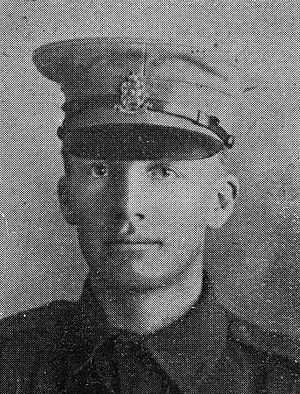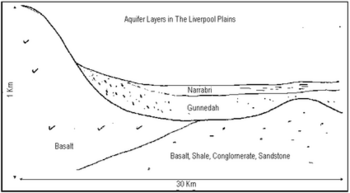Somerton, New South Wales facts for kids
Quick facts for kids SomertonNew South Wales |
|||||||||
|---|---|---|---|---|---|---|---|---|---|
| Population | 277 (2016 census) | ||||||||
| Established | 1839 | ||||||||
| Postcode(s) | 2340 | ||||||||
| Elevation | 326 m (1,070 ft) | ||||||||
| Location | |||||||||
| LGA(s) | Tamworth Regional Council | ||||||||
| County | Parry | ||||||||
| State electorate(s) | Tamworth | ||||||||
| Federal Division(s) | New England | ||||||||
|
|||||||||
Somerton is a small village in northern New South Wales, Australia. It is located between the towns of Tamworth and Gunnedah, right on the Oxley Highway. In 2016, about 277 people lived there. The village is also next to the Peel River, which has plenty of water.
The area around Somerton is known for farming. Farmers here grow many different crops and raise large groups of animals. A plant called Lucerne grows very well along the fertile Peel River flats.
Somerton has a few important services for its residents. These include a primary school, a roadhouse for travellers, a hotel, and a memorial hall. The village is also close to bigger towns like Tamworth and Gunnedah, which offer more job opportunities.
Contents
Somerton's Early History
How Somerton Started
Somerton was first known as Goora. It has a long and interesting history, which began because of the rich land in the Liverpool Plains. Somerton is one of the oldest settlements in this area. It was chosen in 1840 by Edward Mayne, who was the first Commissioner of Crown Lands for the Liverpool Plains. He made Somerton the main office for the huge Liverpool Plains Pastoral District.
Somerton was set up as a base for Commissioner Mayne and his group of Border Police officers. Their job was to keep order and help the British take control of this large northwestern area. On May 6, 1856, plans for the town of Somerton were approved and stored in Tamworth. The village of Somerton was officially divided into streets and land lots in 1858.
A Local Hero: David Heugh
In the early 1900s, Somerton had two general stores. One store also served as the post office. The other, on Bloomfield Street, was called David Heugh General Stores. David Heugh was born on May 21, 1890. He was a young man with big plans and a positive attitude. He often advertised his goods in local newspapers.
On December 31, 1912, David Heugh faced a big problem when his general store completely burned down. An investigation found that it was not his fault. But David Heugh was determined. On February 22, 1913, he used newspaper ads to tell his customers that a new store was being built. He would continue to sell goods from his old building while the new one was constructed.
After starting the Somerton Sports Club in 1913 and registering his company, David Heugh Pty Ltd, in 1914, David decided to join the Army. He left his new general store in the care of his brother, Blandford Heugh. David enlisted on September 13, 1914. Sadly, David Heugh was the first person from the New England region to die in the Gallipoli battle. He passed away on April 29, 1915.
Many other brave men from Somerton also served in the war. Here are some of them:
| Name | Unit Name |
|---|---|
| AVARD, Thomas Henly | 1st Light Horse Regiment, 12th Reinforcement |
| HEUGH, David McNeil | 2nd Battalion, E Company |
| WOOLLASTON, Carl John | Western Australian Reinforcement 3 |
| CHAFFEY, Ernest Alfred | 1st Machine Gun Company, 13th Reinforcements |
| FAY, Thomas Vincent | 1st Light Horse Regiment, 5th Reinforcement |
| FRANKLIN, John | 17th Battalion, C Company |
| MULLER, Clarence Amos | 33rd Battalion, B Company |
| WOOD, Henry Samuel | 33rd Battalion, 1st Reinforcement |
| WOOLASTON, Wilfred Ayles | 4th Battalion, 12th Reinforcemen |
| WOOLASTON, Harold John | Median Trench Mortar Div, First to enlist in the region. |
| WOOLASTON, Reginald Peel. |
Fun and Nature Around Somerton
Somerton is close to several popular places for outdoor activities. These include Keepit Dam and Somerton National Park.
Keepit Dam is a favourite spot for sports and recreation in the inland area. It offers fun things to do all year round for people who love water sports and fishing. Nature lovers, bushwalkers, campers, and picnickers also enjoy the area. The land around the lake has a popular holiday park and a NSW Sport and Recreation Centre. The main reason for the dam is to provide water for farming, animals, and homes in the Namoi Valley. However, it's also a very popular weekend getaway for people from Tamworth and Gunnedah.
Somerton's Rich Land and Water
Underground Water Sources
Somerton village is special because it sits right on top of two large underground water sources, called aquifers. These are the Gunnedah and Narrabri aquifer formations. The Gunnedah aquifer is made of coarse sands and gravels. It is very good at letting water flow through it, acting like a main path for groundwater moving west under the Liverpool Plains. The Narrabri aquifer sits on top of the Gunnedah aquifer. It doesn't let water flow through as easily as the Gunnedah formation.
A lot of groundwater is used in the Gunnedah Basin area. Most of this water comes from these high-yielding aquifers. The biggest part of this water is used for irrigation in farming. Only small amounts are used for town water supply, mining, and even less for animals and homes.
Farming and Agriculture
Somerton is surrounded by excellent land for growing crops and raising animals. In the 1800s, when it was a convict settlement, Somerton also had a large fruit orchard on the river flats. The last tree from this original orchard fell during a flood in 1910.
Around 1910, the area near Somerton had about 7,858 hectares (19,408 acres) of wheat. This land produced a huge amount of wheat, about 273,906 bushels! Reports from that time suggested that farming in the area was growing and becoming more diverse. Somerton's location at the entrance to the very productive Liverpool Plains means it is among some of Australia's best farming lands.




